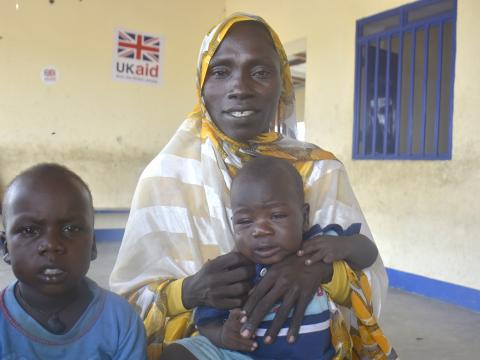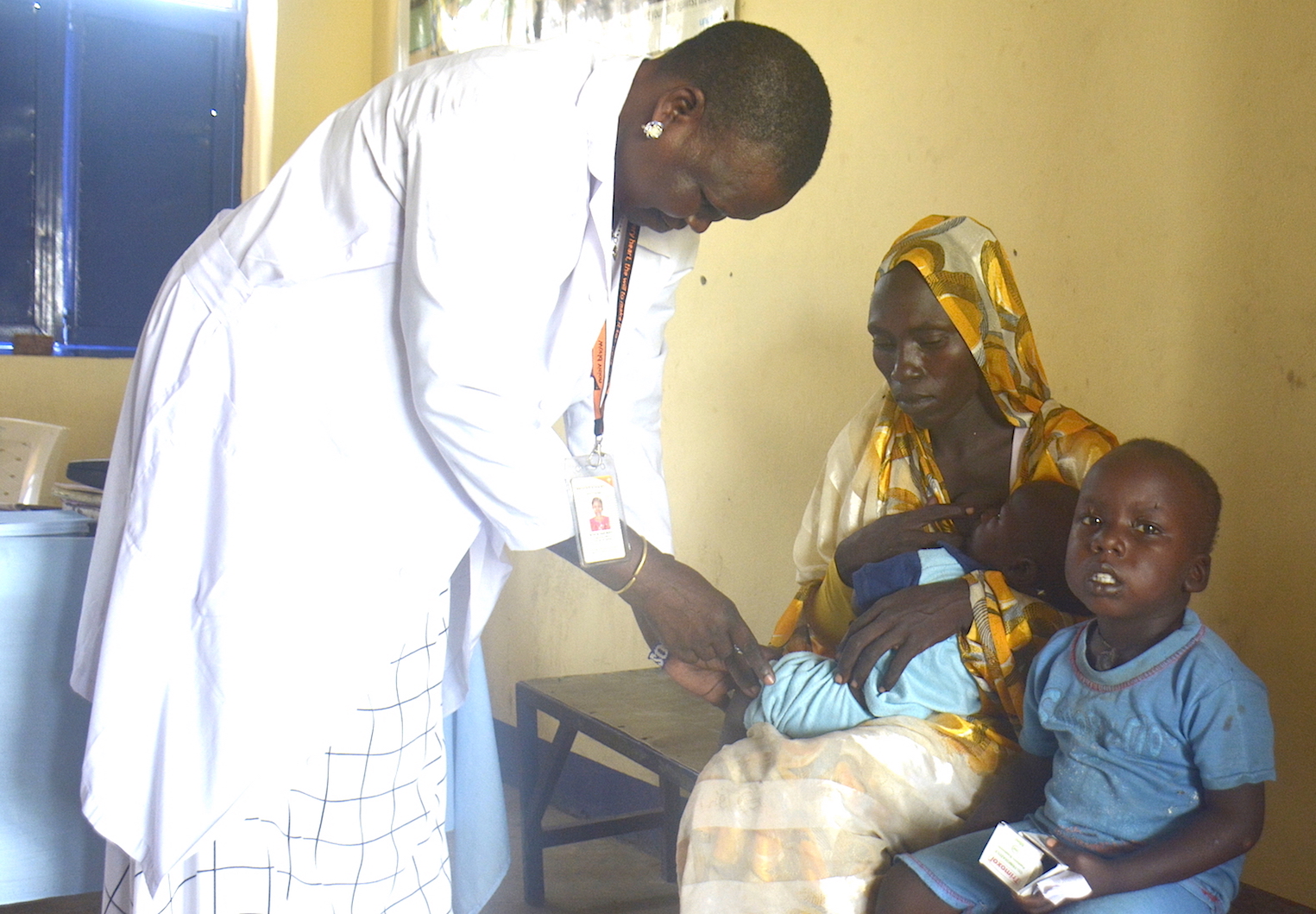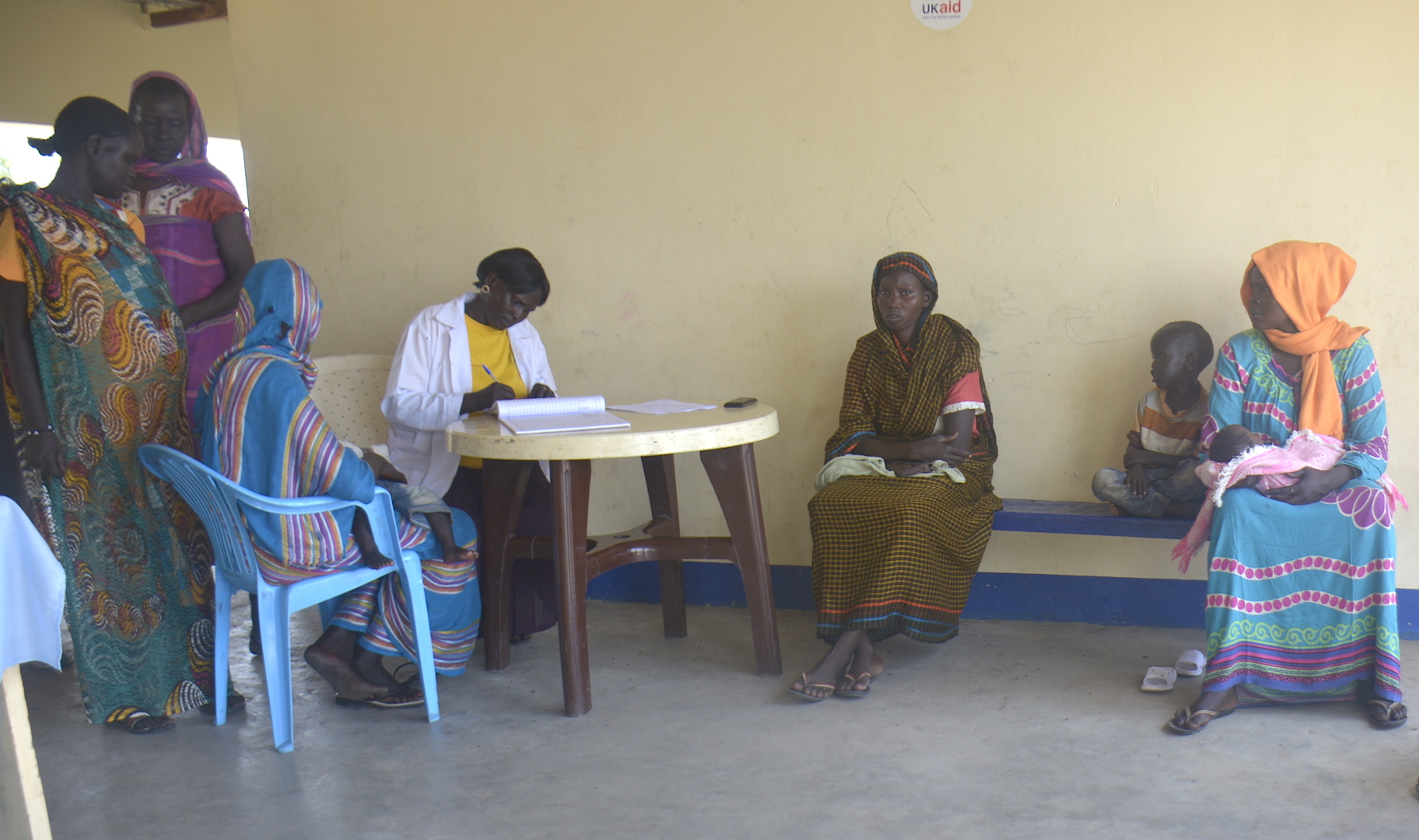Medical services benefit over 87,000 people in South Sudan’s Renk County

Hawa Omar Issa Adam, 30-years old and a mother of seven sadly says, “I lost my son Ratwai because I could not afford to buy him medicines from the clinic.”
Today, Hawa has expressed her gratitude that World Vision is in Jalhak, a village in Renk County which is a part of Upper Nile State in South Sudan. She says, “We have been receiving health services for free through World Vision’s support in our primary health care clinic (PHCC) including medicines that we need. The clinic in Jalhak serves over 12,000 mothers and babies coming from at least 15 neighbouring villages.
Supported by Department for International Development (DFID) and the World Bank through UNICEF, World Vision’s health program is supplying essential life-saving drugs, providing treatment for common child diseases such as malaria and organizing staff trainings in managing health conditions in four PHCCs in Renk County since 2017.
The goal of the program is to help reduce children’s diseases and prevent potential deaths on children under the age of five years and pregnant women.
According to Hawa, the services at the health care are very helpful and assists everyone wherever they come from. “My husband Monwir and I are jobless. Before this facility was put in place, we depended on local herbs resulting to my son’s death because we just treated him with herbs without even knowing what he was sick of”, Hawa shares.

She adds, “I gave birth to my 3-year-old son Sabri on October 2017 at the clinic and all throughout my pregnancy period, I was cared for by the midwives. This gave me strength compared before when I had difficult experience giving birth at home. I even almost lost my life giving birth to my second born.”
“Giving birth at the hospital was very easy and so fast. I did not experience pain for a long period unlike before when I could not even walk for a several days after delivery”, Hawa says. Most women in Renk still believe in and ask for the services of traditional birth attendants, Hawa said. She is urging organizations to reach out to the other villages without health facilities and train more health personnel and midwives to avoid endangering lives of mother and child during delivery.
“I praise Allah for bringing World Vision to Jalhak especially for my family. I see my children grow up healthy and it gives me joy. This clinic has solved many of the community’s health issues. May Allah bless World Vision for what they are doing in the community”, Hawa happily shares. One of the trained midwives, Abel Nyok recalled that it took them a long time to make the community understand that childbirth at home is dangerous for both the baby and the mother because of untrained and ill-equipped traditional birth attendants.
“World Vision trained many of us in the community”, she adds and continues, “I see a great change because a lot of women visit the clinics from pregnancy to delivery.” Abel adds, “I even sometimes have to sleep at the clinic to attend to mothers. This makes me proud because I am helping save lives”, she shares.
Dr Jok Chuli Jok, the Director General of the State Ministry of Health, Northern Upper Nile State says, ”The services our people receive in the primary health care centre are very good. We plan to work with World Vision to introduce additional treatment facilities such as a laboratory to improve our capacity to provide people with better medical assistance.”
George Kijana, World Vision’s Health Project Manager in Renk County says, “The use of health services in the clinics we support has increased tremendously in the past two years. The population is more informed about available services and health consciousness has improved. The critical lifesaving health services such as vaccination for children and care for pregnant women are available and accessible for 24 hours.”
Kijana added that World Vision started by supporting four but now has increased to a total of 10 health facilities which includes one hospital. World Vision’s health programs in South Sudan has reached out to over 1.5 million who received health care and treatment from supported facilities. Over 438,000 children and lactating mothers were screened for malnutrition and supported with their needs.

Story and photos by Scovia Faida Charles, Communications Officer